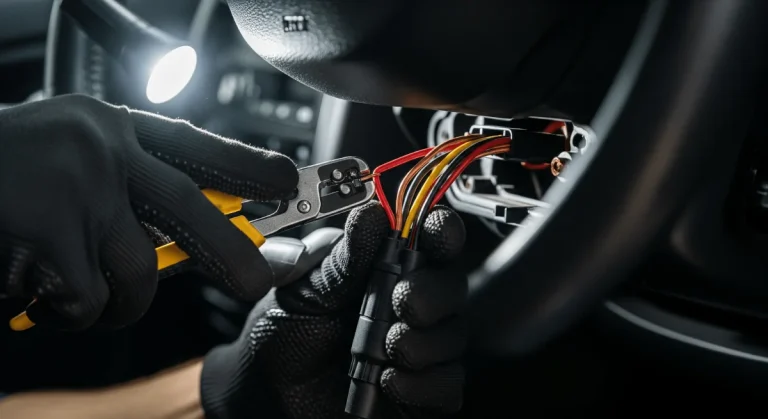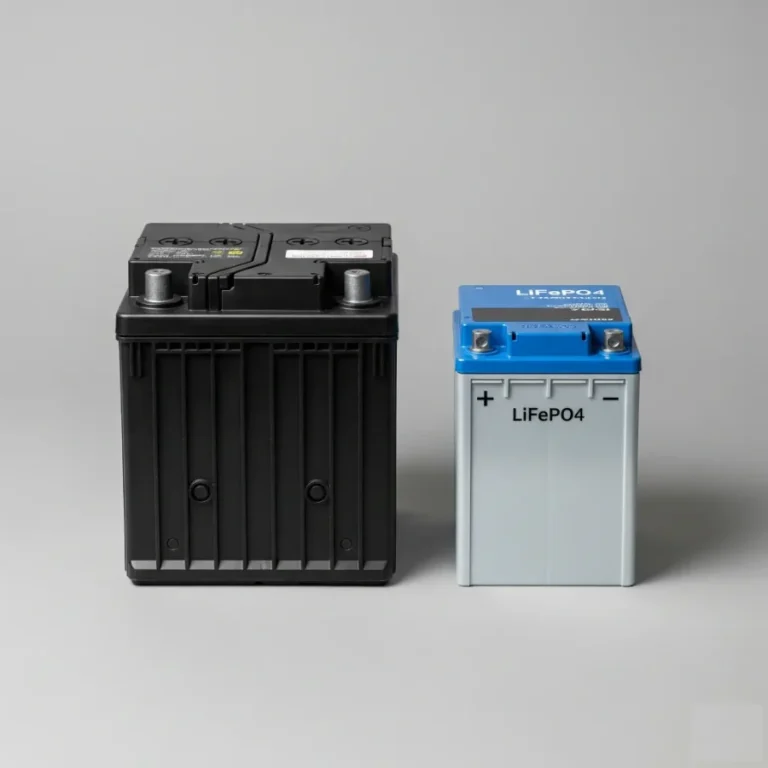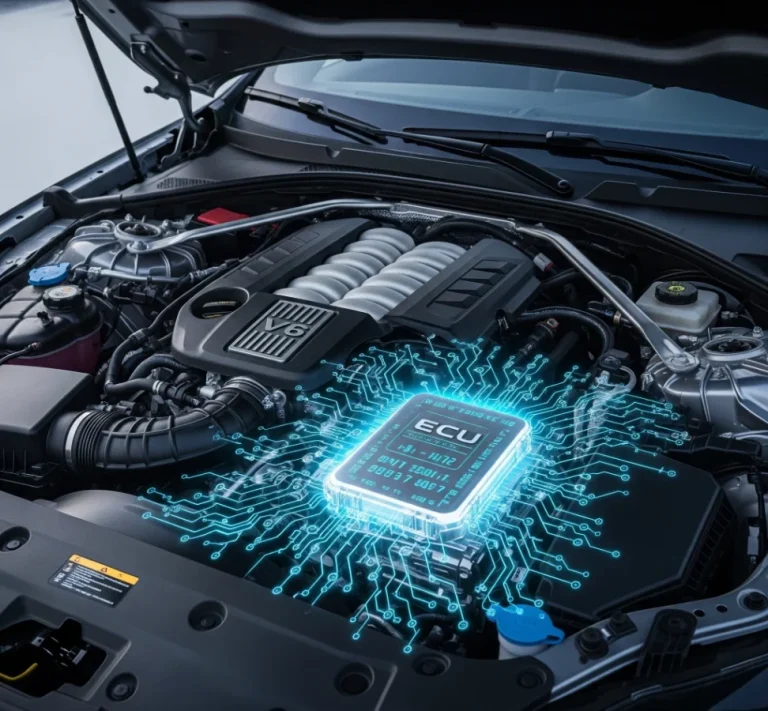Can a Weak Battery Cause Your Car to Run Rough? An Expert Mechanic Explains
You know the feeling. You’re sitting at a stoplight, and your car starts to shake. Maybe it sputters when you accelerate or, even worse, stalls completely. It’s frustrating and frankly, a little scary. Your mind probably jumps to complex engine problems or expensive transmission repairs. But what if the culprit was something much simpler?
In my 15+ years as an ASE-certified Master Automobile Technician, I’ve seen countless drivers overlook one of the most common causes of these exact issues: a weak or failing battery.
Most people think the battery is just for starting the car, but its job is far from over once the engine is running. This guide will explain exactly how a weak battery can cause your car to run rough, the specific symptoms to watch for, and what you can do about it.
Key Takeaways: The Short Answer
- Direct Answer: Yes, a weak or failing battery can absolutely cause your car to run rough.
- Why it Happens: A weak battery provides unstable electrical voltage, which can confuse your car’s computer (ECU), cause weak spark plug firing, and disrupt fuel delivery.
- Key Symptoms: The most common signs are a rough idle, stalling, poor acceleration, engine hesitation, and dimming lights.
- The Solution: The fix is often as simple as testing, cleaning, recharging, or replacing the battery.
How a Simple Battery Can Disrupt Your Entire Car
Think of your car’s battery as the heart of its electrical system. Its primary job is to deliver the powerful jolt needed to start the engine. Once the engine is running, the alternator takes over, generating power for your car and recharging the battery.
However, the battery has another critical role: it acts as a voltage stabilizer. It’s like a buffer, smoothing out the electrical current to ensure every electronic component, from your radio to your engine’s computer, gets a steady, reliable stream of power.
The Domino Effect of Low Voltage
When a battery is weak, it can’t hold a stable charge. This forces the alternator to work much harder to try and keep everything powered and charge the battery simultaneously. This extra strain can lead to voltage fluctuations—spikes and dips in electrical power.
Modern vehicles are packed with sensitive electronics that depend on a precise voltage (typically around 12.6 volts) to function correctly. When that voltage becomes unstable, it sets off a domino effect that results in poor engine performance. This is why a bad battery can make your car run rough.
The Core Reasons a Weak Battery Causes Rough Performance
So, how does that unstable voltage translate into your car shaking, stalling, or sputtering? It comes down to four critical areas.
1. Confusing the Engine’s Brain (ECU)
Your Engine Control Unit (ECU) is the central computer that manages everything from the fuel-to-air mixture to ignition timing. It relies on a steady stream of data from sensors all over the car. Unstable voltage can corrupt the signals from these sensors or impair the ECU’s ability to process them, causing it to make poor decisions that lead to rough performance.
2. Causing Engine Misfires
Your ignition system needs strong, consistent power to create a powerful spark that ignites the fuel in the cylinders. A weak battery can lead to a weak spark from the ignition coils. A weak spark results in incomplete fuel combustion, which you experience as an engine misfire, sputtering, or hesitation.
3. Starving the Engine of Fuel
The electronic fuel pump and fuel injectors are responsible for delivering the precise amount of gasoline to the engine at the right time. They are designed to operate at a specific voltage. When the voltage drops, the fuel pump may not supply enough pressure, or the injectors may not open and close correctly. This throws off the fuel-to-air ratio, effectively starving the engine and causing it to run rough or lose power.
4. Creating Transmission & Shifting Issues
In modern automatic vehicles, gear shifts are controlled by electronic solenoids and sensors that communicate with the ECU. If these components don’t receive the stable voltage they need, it can lead to hard shifting, a delay in gear engagement, or even cause the transmission to go into a “limp mode.”
7 Telltale Signs Your Battery Is the Problem
If you’re experiencing any of the following symptoms, a weak battery could be the underlying cause.
- Rough Idling and Shaking: This is one of the most common complaints. The inconsistent power causes the engine’s RPMs to fluctuate at idle, leading to vibrations and shaking that you can feel in the cabin.
- Stalling for No Reason: A car, especially a modern one, should not stall at a stoplight. If the battery voltage drops too low when the engine is at idle (and the alternator isn’t spinning as fast), the ECU or ignition system can lose the power they need to keep the engine running.
- Hesitation or Loss of Power When Accelerating: When you press the gas pedal, you demand more from your engine, which in turn demands more from your electrical system. A weak battery can’t supply this extra power, leading to a noticeable lag, stumble, or general loss of power.
- Slow or Struggling Engine Crank: This is the classic sign of a dying battery. If your car makes a “wuh-wuh-wuh” sound before it starts, the battery is struggling to provide enough power to the starter motor.
- Dimming Headlights and Flickering Dashboard Lights: Notice your headlights dim when you’re idling and then brighten when you rev the engine? This is a clear sign that the alternator is doing all the work and the battery isn’t contributing as it should.
- The Check Engine Light Comes On: Misfires, fuel delivery problems, and bad data from sensors can all be triggered by low voltage. When the ECU detects these problems, it will often illuminate the Check Engine Light.
- Your Car Jerks or Stutters: Similar to misfiring, sudden jerking or stuttering during steady driving can be caused by the fuel pump or ignition system momentarily failing due to a dip in voltage from a weak battery.
Is It the Battery, the Alternator, or Something Else?
It can be tricky to pinpoint the exact cause, as a bad battery and a bad alternator have overlapping symptoms. Here’s a quick guide to help you tell the difference.
Clues It’s Your Battery:
- The car struggles to start or won’t start at all.
- Problems are most noticeable at startup.
- The car runs fine after being jump-started, but may die again later if left off.
- The battery is more than 3-4 years old.
Clues It’s Your Alternator:
- The car starts fine, but then the battery dies while driving.
- The headlights and dashboard lights get progressively dimmer as you drive.
- You hear a whining or grinding noise coming from the engine bay.
- The red battery warning light on your dashboard stays on while the car is running.
Other Possibilities: Bad Ground Wire
A loose or corroded battery ground wire can create resistance in the electrical system, perfectly mimicking the symptoms of a weak battery. This is a simple but often-overlooked check.
Your Action Plan: What to Do Next
If you suspect your battery is failing, here are three simple steps to take.
Step 1: Visual Inspection & Terminal Cleaning
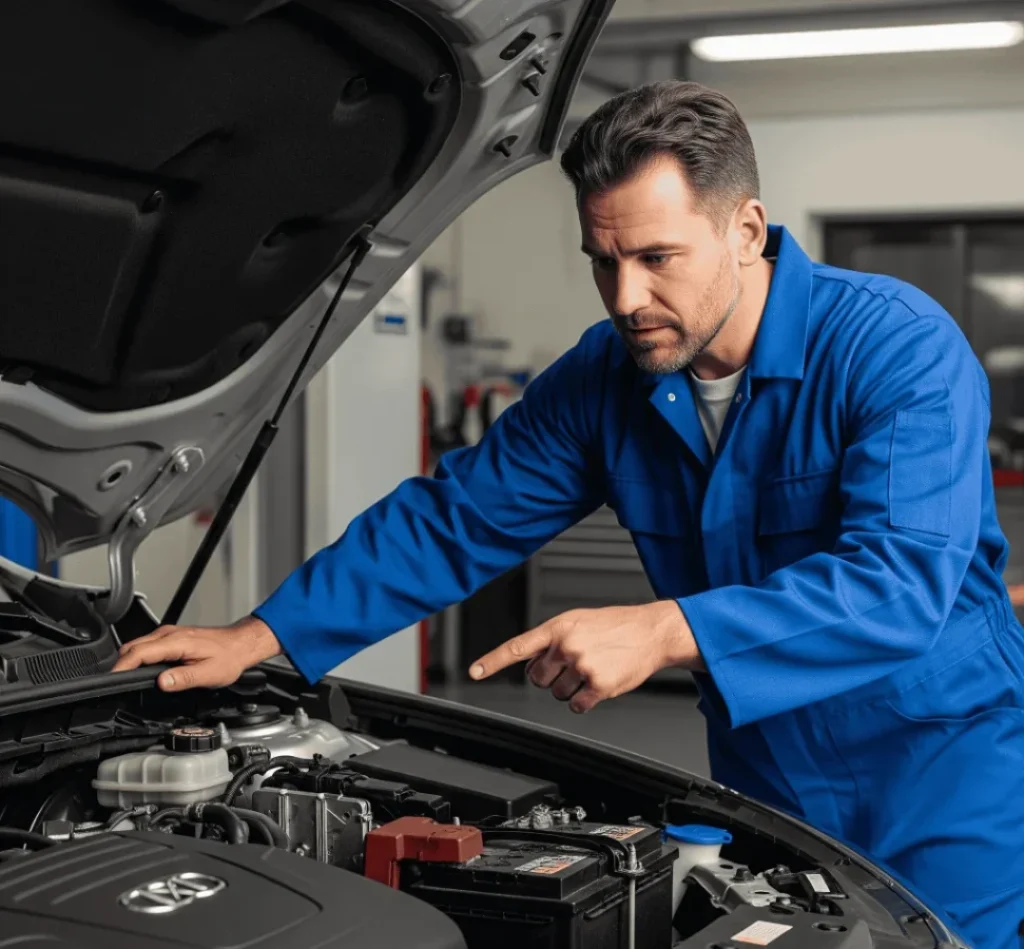
Pop the hood and look at the battery. Check that the connection cables are tight and not moving. Look for a fuzzy, blue-green, or white substance on the battery terminals—this is corrosion. As recommended by vehicle maintenance guides, like those from the U.S. government, keeping terminals clean is vital. You can clean them with a wire brush and a mixture of baking soda and water. Always wear gloves and safety glasses.
Step 2: Get a Professional Battery Test
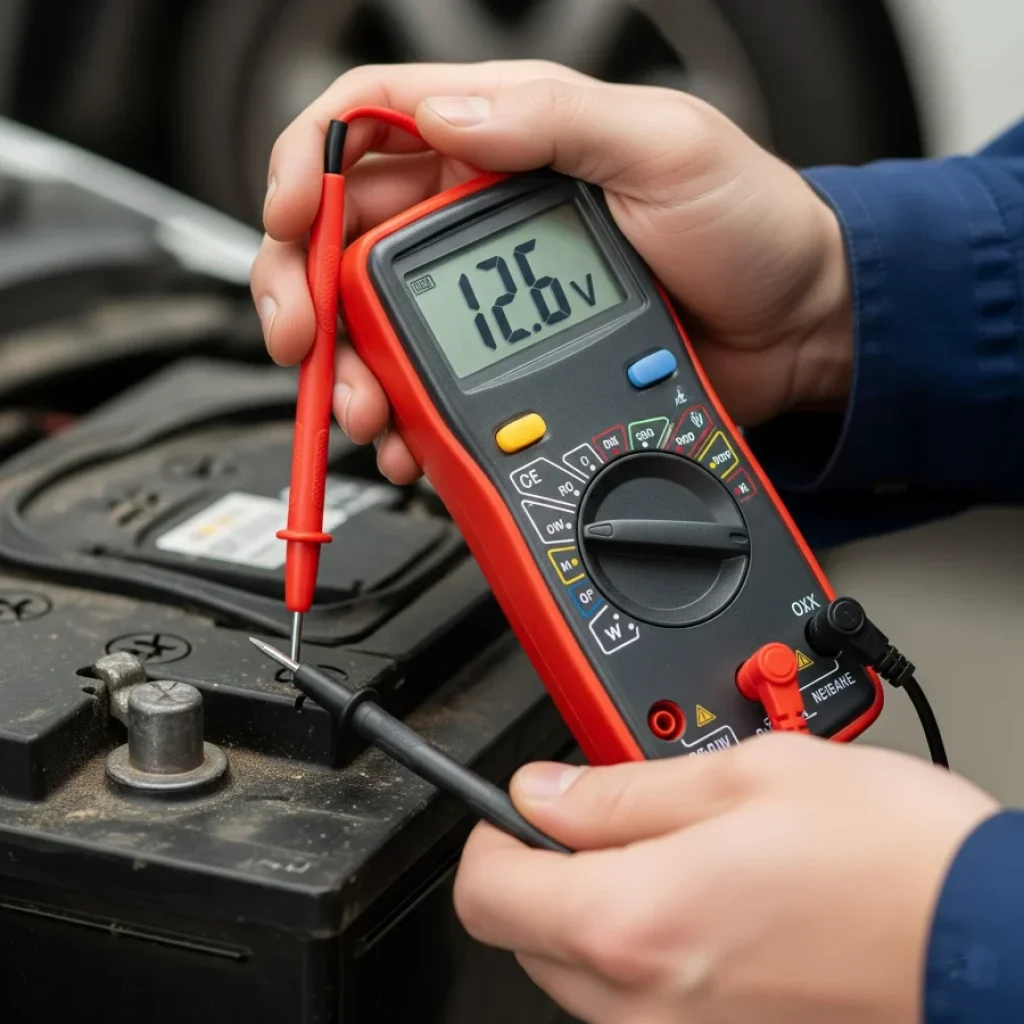
The most reliable way to know your battery’s health is with a load test. This test measures the battery’s ability to deliver power under real-world conditions. Most auto parts stores will perform this test for free, or you can have it done by your mechanic.
Step 3: Charge or Replace
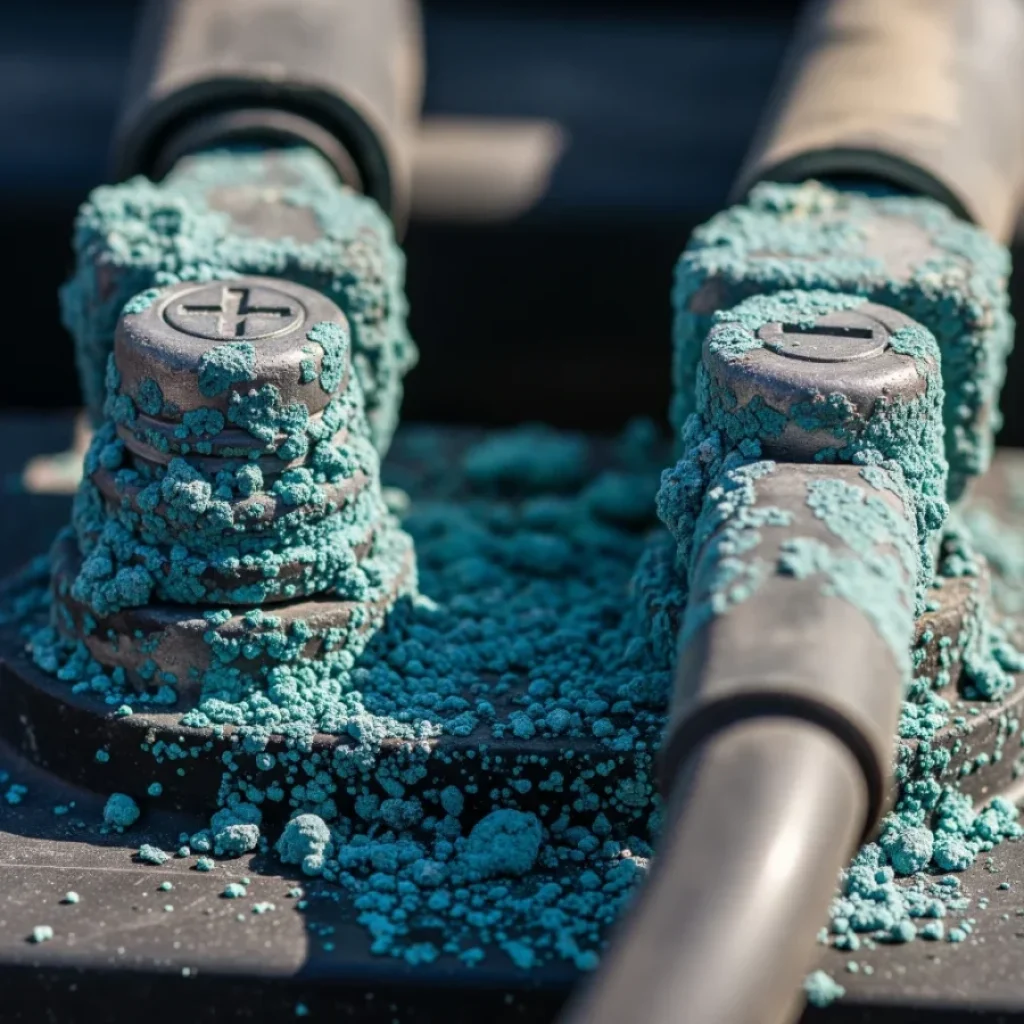
If the battery is relatively new and just drained (perhaps you left the lights on), a full recharge might solve the problem. However, if the battery is over 3-5 years old or fails a load test, it’s time for a replacement. A new battery is one of the most cost-effective ways to restore your car’s reliability.
Frequently Asked Questions (FAQ)
Will a new battery make my car run better?
If the old battery was weak, then yes, absolutely. A new battery provides the stable voltage that your ECU, ignition system, and fuel pump need to operate at peak performance, which can result in a smoother idle and better acceleration.
Can a bad battery cause rough acceleration?
Yes. Rough or hesitant acceleration is a classic symptom of a weak battery being unable to supply the consistent power needed by the fuel pump and ignition coils when the engine is under load.
How do I know if my battery is too weak for my car?
A slow engine crank is the most obvious sign. Other indicators include dim lights at startup and any of the “rough running” symptoms mentioned above. The only way to know for sure is with a professional load test.
Why is my car running weird after a new battery?
This is often because the car’s computer (ECU) has lost its “learned” settings. It usually needs to go through a relearning process, which you can sometimes initiate if you know how to reset the car computer without disconnecting the battery.
The Final Word
So, can a weak battery cause a car to run rough? The answer is a resounding yes. It’s not just a box that starts your engine; it’s a critical component that ensures the stability of your vehicle’s entire electrical system.
Don’t ignore the signs. A simple battery test can save you from a major headache and potentially dangerous situations on the road. If your car is shaking, stalling, or just doesn’t feel right, get your battery and charging system checked by a professional. It’s a simple step that can restore your car’s performance and your peace of mind.


